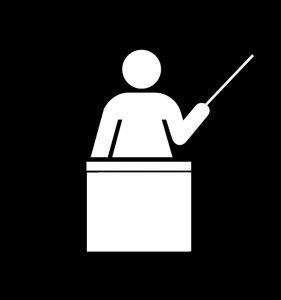I am not a “real teacher.”
 I am not a “real teacher.” At least that is the reaction I have heard for decades when telling people the specifics of my teaching assignment. Over the years, I have been:
I am not a “real teacher.” At least that is the reaction I have heard for decades when telling people the specifics of my teaching assignment. Over the years, I have been:
- teacher in a middle school library/media center (teaching language arts and cultural arts minicourses on media production, research, and more)
- push-in teacher of process writing (co teaching with middle school language arts teachers)
- gifted program specialist, grades 2-8 (implementing individualized enrichment and advancement per IEPs for which I was case manager)
- technology integrator (peer coach to teachers on effective use of technology in their teaching)
- Adjunct grad instructor (teaching Technology for Educators to teachers and teachers-to-be)
- Director of K-12 Initiatives (running TeachersFirst, an online friend and “coach” to any teacher seeking ways to improve their own teaching and enhance/facilitate learning using technology)
What I have never been:
- a teacher of a self-contained, elementary class
- a teacher of a narrowly defined or scripted curriculum
- a teacher with a textbook or teacher edition
In the world of teaching, there are “real teachers” (aka “regular” teachers) and “specialists.” “”Real” teachers’ days follow predictable patterns and behaviors (the ones most adults ascribe to teachers based on our own experience in school). Then there are teachers whose patterns are less easy to explain or envision. Unless you have shared the same role, you have no idea what a teacher-librarian, Art teacher, school counselor, learning support teacher, speech/language clinician, reading specialist, instructional coach, or ed tech coach actually DOES. Those of us who are not “real teachers” do not use a specific textbook — or teacher edition. Our patterns, while possibly predictable, are not like those of “real teachers.” We are the ones who are assigned extra bus/hall duty (and the worst Friday afternoon study halls) or who are told to fill in when a “real” teacher is sick and there is no sub. We are the ones that “real teachers” do not fully understand. On the worst days, “real” teachers may even covet our mysterious positions.
As education grinds toward the divergent goals of 21st century individualization and test-based accountability, those who are not “real” teachers may be best prepared to handle the push-pull of change. All teachers today are pushed beyond previous patterns. Those of us accustomed to inventing our own wheels may have a slight advantage. “Real” teaching has changed. Now is the time for us to share ideas and strategies to invent our own teaching wheels. Those who embrace technology have some helpful tools. Those who embrace collaboration, questioning, reflection, and mutual support have even more. Let’s make teaching and learning “real” together. Thinking Teachers Teaching Thinkers are much more important than “real” teachers.




Well said. A fellow unreal teacher from NZ.
Comment by James — October 14, 2014 @ 6:18 am